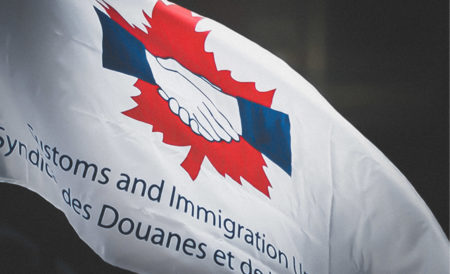Canada’s labour movement has a long history of fighting – and winning – battles for decent wages, better working conditions, and stronger protections that improve people’s lives.
It’s thanks to unions and thousands of workers and activists who took to the streets in the spring of 1872 that we enjoy weekends and the eight-hour workday today.
It’s because unions never waned in the fight for women’s equality that parents now get paid parental leave to spend with their families when it matters most.
We have the right to refuse unsafe work and have a say in making our workplaces safer because unions led the way towards reforms in occupational health and safety.
From minimum wages and protection against discrimination and harassment to overtime pay and vacation pay, there is no doubt unions have helped make Canada a better, safer place to live and work.
New challenges ahead
But today, our movement still faces challenges – some new, others we’ve been grappling with for decades.
The pandemic changed the way that we live and work, but we’ve adapted to make sure you’re protected at work – whether that’s in your workplace or at the kitchen table.
We’re fighting for fair wages in bargaining as record-high inflation squeezes workers and makes life less affordable. Meanwhile, wealthy corporations continue to line their pockets with record profits.
Unions are working to tear down the systemic barriers Black, Indigenous, Asian and other racialized workers continue to face in their workplace, from discriminatory hiring practices to limited career advancement, and underrepresentation in management positions.
These trying times remind us that now, more than ever, we can’t waver in our fight for fair wages, good working conditions and inclusive workplaces — not just for PSAC members, but for all Canadian workers.
But to make major gains for workers, we need to be organized and work together. Because we have strength in numbers with more than 230,000 PSAC members behind us – with thousands more joining us ever year – we can drive the change we want to see in our workplaces.
So this Labour Day, don’t just thank a union. Take action and get involved:
Keep your contact information up to date via the member portal to receive all the latest updates about bargaining.
This article was first posted on the PSAC website.






